Friendo to HE: “I dare you to watch Dear Evan Hansen all the way through. All 137 minutes of it.”
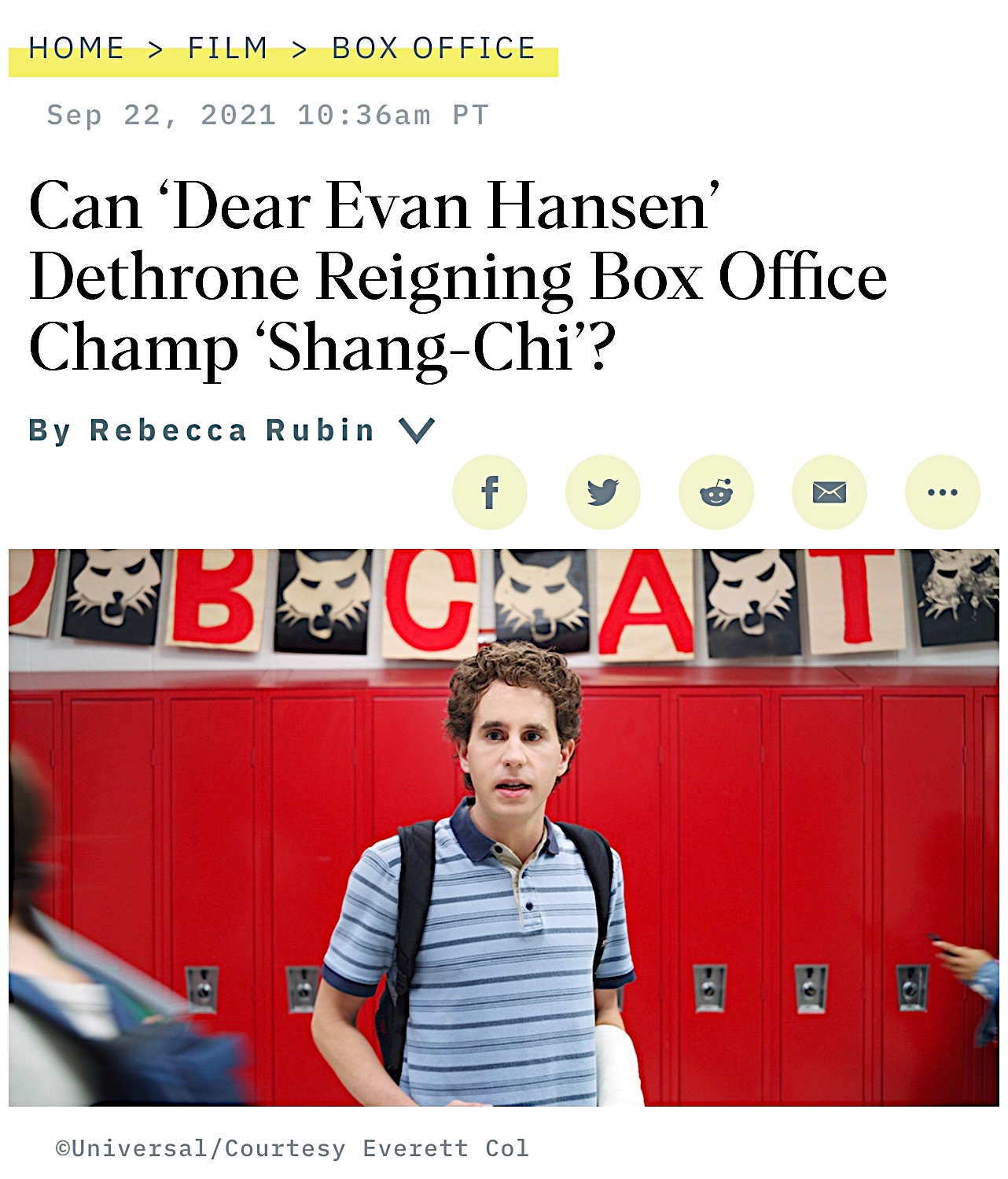
Friendo to HE: “I dare you to watch Dear Evan Hansen all the way through. All 137 minutes of it.”

Thursday, 9.23, 8:40 am: Jesus…not a peep. Time was when George Clooney teaming with Ben Affleck would’ve meant something, stirred the pot, ignited some chatter. Flatline.

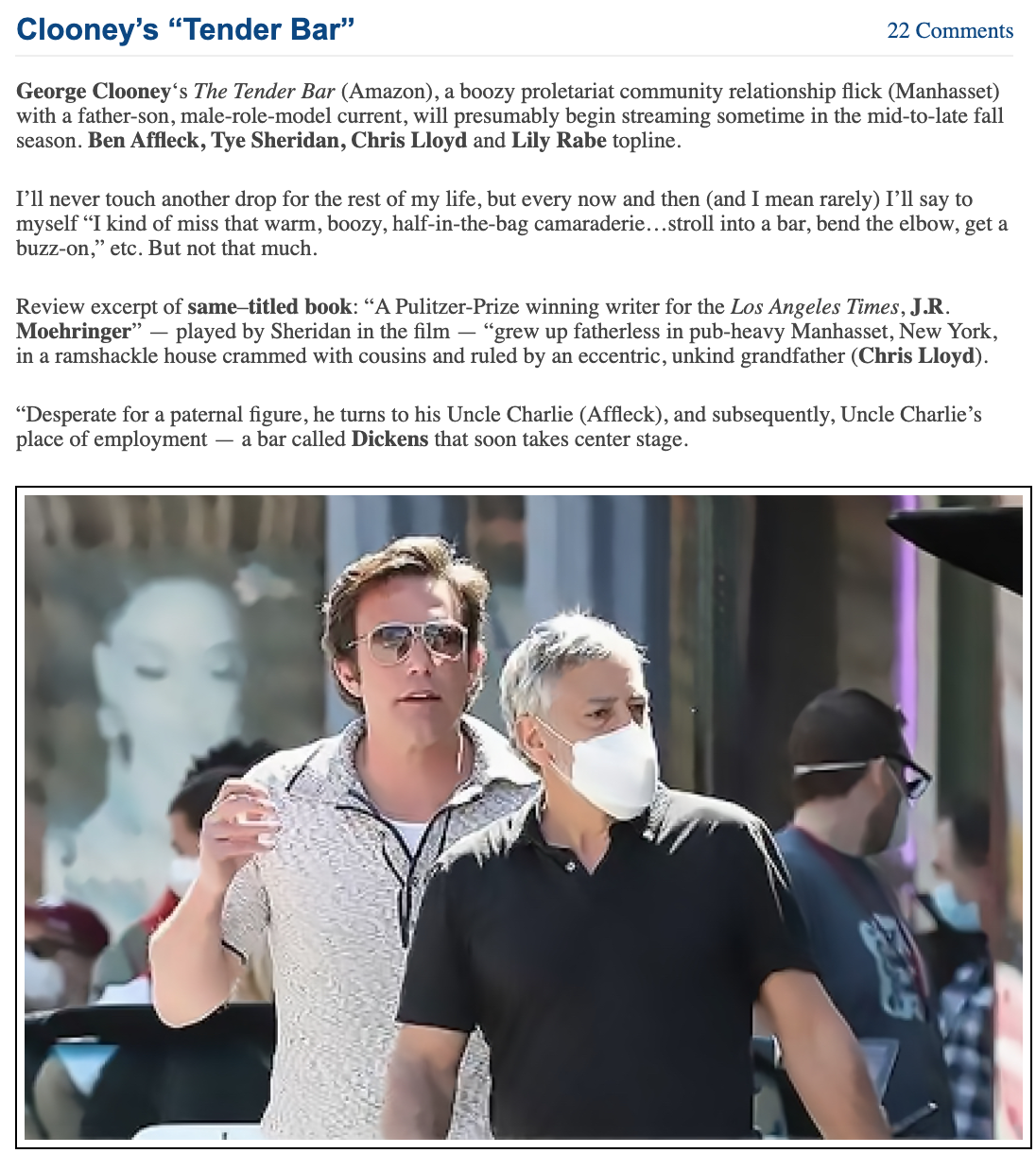
BFI LONDON FILM FESTIVAL PEEK–OUT:

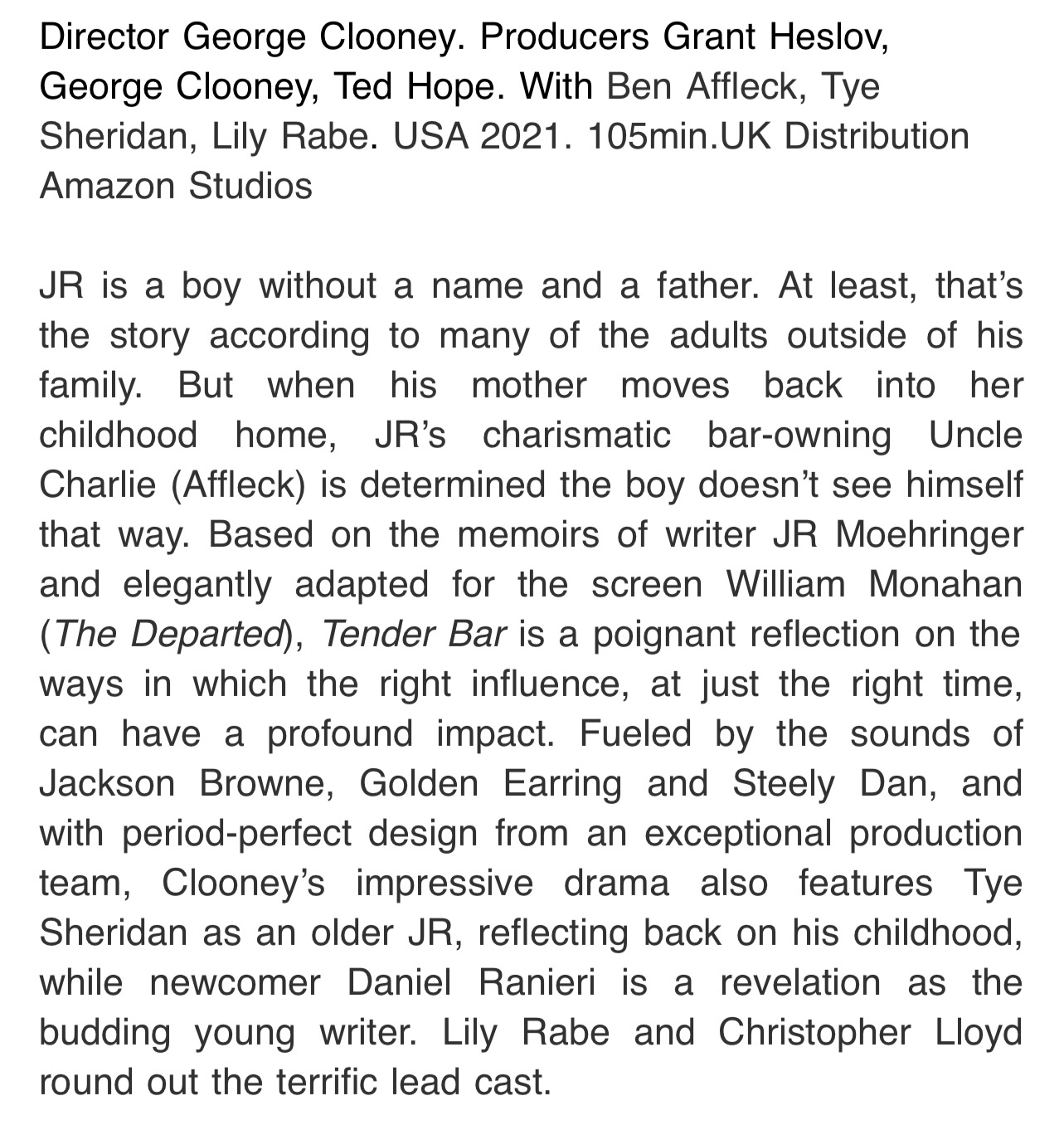
Indie filmmaker and pioneering blaxploitation auteur Melvin Van Peebles (Sweet Sweetback’s Badasssss Song, Watermelon Man, Classified X) has passed at age 89. Due respect and condolences to family, friends, fans and colleagues. A breakthrough artist and a go-his-own-way giant among black directors in the ’60s and’70s, Van Peebles paved the way for many who followed in his wake. He also wrote four novels, at least one respected play (La Fête à Harlem) and a collection of short stories; also a smart Wall Street investor. Melvin was the father of actor-director Mario Van Peebles.
A couple of days ago World of Reel‘s Jordan Ruimy posted the results of a 40-critic poll about films that had played at the 2021 Toronto Film Festival. Film critics are generally too dweeby as a rule and their favorites rarely synch with the preferences of Joe and Jane Popcorn, but at least they brushed aside Kenneth Branagh‘s Belfast, the TIFF People’s Choice award winner.
Of all the films voted upon, Branagh’s finished 30th with a piddly three votes to its name.
I’m not suggesting that these and other critics should write a letter to Sid Ganis about his remark, shared during the recent Telluride Film Festival, that Belfast was one of the best films he’d ever seen in his life. But if they were to compose such a letter and send a hard copy to Ganis’s home, it could read something like this:
“Dear Mr. Ganis — There is no one ‘right’ opinion about any film, and we, the undersigned, are certainly not saying that you misjudged Kenneth Branagh‘s Belfast or that your comment to Deadline‘s Pete Hammond needs to be reevaluated or recanted. You have an absolute right to your view. No one is suggesting otherwise.
“But by the same token we have a right to our own shared opinion, no offense, which is that Belfast is a movie for the chumps. Which is why we didn’t even consider rating it as one of the top 20 films of the just-concluded Toronto Film Festival, or even among the top 30.
“By all means go with God, embrace Belfast, tell your Academy-member friends how wonderful it is…all to the good. But when we, the undersigned, considered the opinion that you shared with Hammond earlier this month, the blood, no offense, drained from our faces. — Respectfully, the World of Reel 40.”
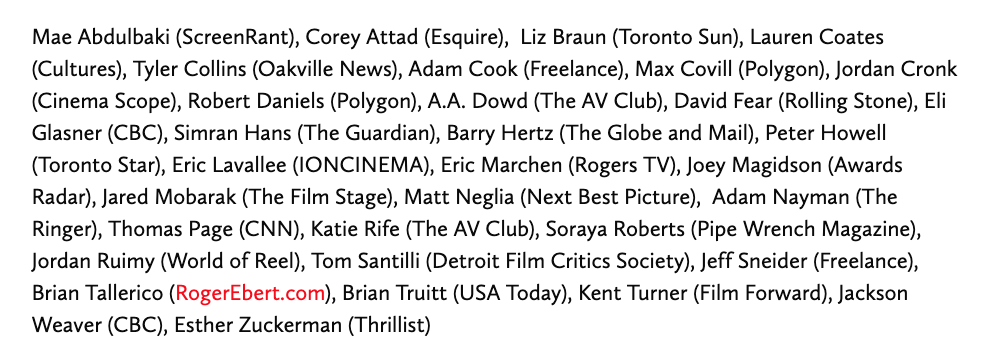
Before yesterday I’d never seen the cover of the hardback edition of Quentin Tarantino‘s novelization of Once Upon A Time in Hollywood. (I own the paperback version.) It may be appears to be a fan-created book cover. Nonetheless we’re all familiar with Quentin’s female foot fetish; ditto why he told Margaret Qualley to put her bare feet on the dashboard of Brad Pitt‘s car. Everything is subjective but HE is distressed by the resemblance to my own damn feet…God. HE’s personal preference is after the jump.
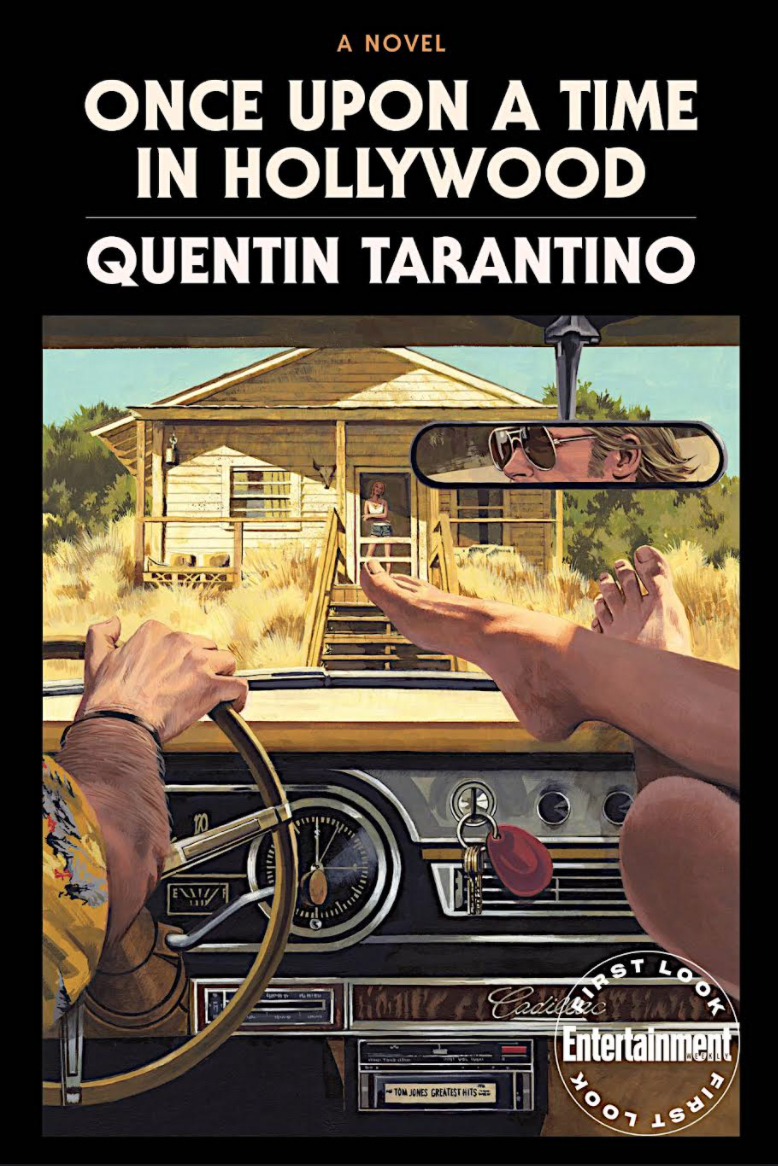
If a reporter or editor puts quote marks around a term, it means that he/she regards the term as exotic and to some degree suspect. Especially if they qualify it by adding “so-called”.
It goes without saying that this kind of usage can be self-revealing.
If a reporter or editor puts quotes around “systemic racism” with a “so-called” qualifier, they would be instantly suspected of being Republicans if not white supremacists and probably fired and ex-communicated. Same result if they were to post an article that used the term “so-called ‘sexual harassment'”. Ditto if a reporter or editor were to publish an article that included “so-called ‘climate change'” — only a rightwing denialist would use such terminology.
So we know where Variety reporter Jamie Lang (and/or his editor) is coming from when an opening paragraph about a Johnny Depp press conference at the San Sebastian Film Festival reads as follows:
“Johnny Depp was only meant to be asked questions relating to his career during a press conference preceding his Donostia Awards reception at the San Sebastian Film Festival. But in response to one journalist’s bold attempt to parse the actor’s thoughts on so-called ‘cancel culture’ and how social media can affect public figures, Depp did not hold back.”
The difference is that Variety has no problem with alluding to “cancel culture” as a dubious or iffy term.
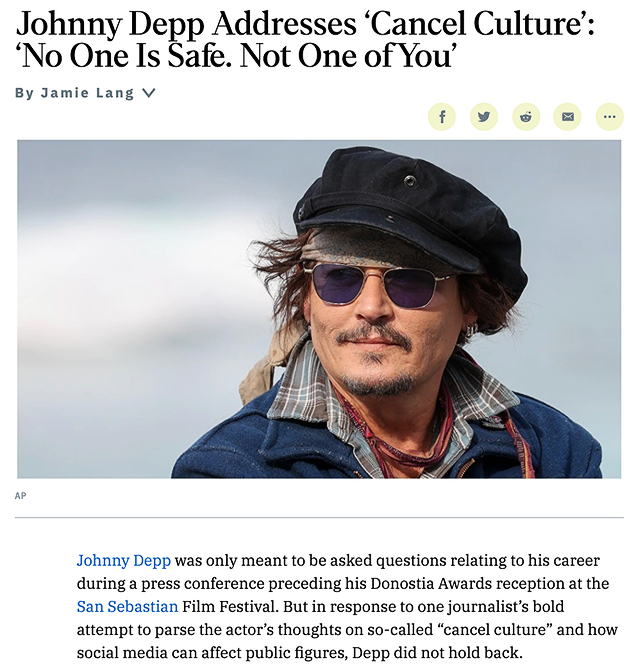
Inspired by the coming of Joel Coen‘s The Tragedy of Macbeth, I decided to re-watch my Criterion Bluray of Roman Polanski‘s Macbeth (’71) — easily the finest filmed adaptation of Shakespeare’s classic melodrama ever made.
But I was diverted by Toil and Trouble: Making Macbeth (’14), an hour-long doc that covers the whole fascinating process. I stayed with it. Highly recommended.
Polanski is so brilliant, such a master. I have nothing but contempt for those who refuse to differentiate between the artist and the man and give the artist his due, even to the extent of blocking J’Accuse from being streamed.
An excellent year, and in this order:
1. 4 Months, 3 Weeks, 2 Days; 2. Before The Devil Knows You’re Dead; 3. No Country for Old Men; 4. Once; 5. Superbad; 6. Michael Clayton; 7. There Will Be Blood; 8. Things We Lost in the Fire; 9. Zodiac; 10. The Assassination of Jesse James by the Coward Robert Ford; 11. Atonement; 12. American Gangster; 13. I’m Not There; 14. Sicko; 15. Eastern Promises; 16. The Bourne Ultimatum, 17. Control; 18. The Orphanage; 19. 28 Weeks Later; 20. In The Valley of Elah; 21. Ratatouille; 22. Charlie Wilson’s War; 23. The Darjeeling Limited; 24. Knocked Up; 25. Sweeney Todd.
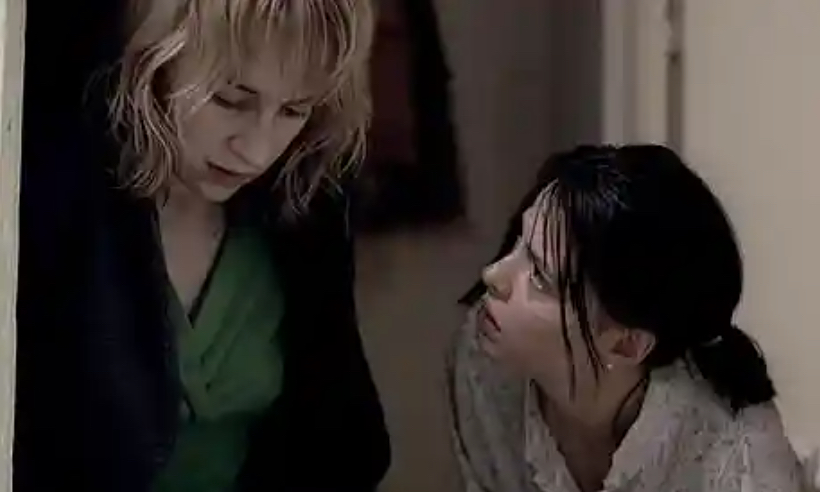
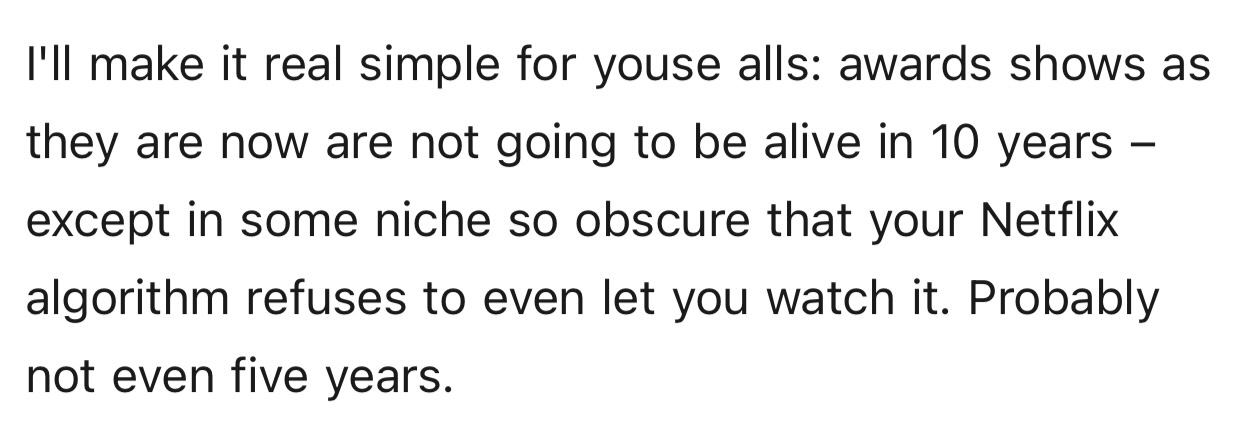
HE reply: For all its negative or deplorable aspects, award season — an annual rite that encourages filmmakers to at least try to make aspirational, quality-calibre films — is the only thing preventing the film industry from becoming a totally synthetic garbage mechanism. It is worth holding onto at all costs. Actors, directors, producers, screenwriters and distributors all want their moment in the sun. Ditto high-end craftspersons.
Industry press people were given a big celebration tour this morning of the Academy Museum of Motion Pictures, which will open to the public on Thursday, 9.30. It’s beautifully designed (we’ve all seen the photos and videos) and, according to a friendo who attended, is quite the stirring atmospheric history trip as you stroll through it.
I didn’t attend, naturally, being the beloved and admired fellow that I am and always have been, but friendo’s basic impression was that the museum’s sensibility and atmosphere conveys a mixed or blended message — an historical celebration of a once hugely influential, 116-year-old industry (naturally) plus earnest attempts to instruct and enlighten.
What the museum is effectively saying to visitors is this: “While we’re obviously paying tribute to those classic, iconic Hollywood accomplishments and traditions of yore…that fabled tinseltown mythology that reflects a sometimes difficult but always passionate history…a Hollywood of royalty and high-style glamour and iconic cultural influence reaching back 100 years and more…despite this obvious effort on our part, we are also celebrating the new emerging Hollywood of today, and that means a commitment to diversity and change and the lifting of all boats.”


What the museum represents and is in fact celebrating, the friend says, is a view that the industry is committed to doing the right thing…the Academy believes itself to be at the vanguard of a social-political revolution within the entertainment realm, a cultural changeover that has been sought for decades and has finally come into being over the past five or six years.
In short, friendo asserts, after visiting the museum and contemplating all the features and exhibits and the cultural “all” of it, one is left with a definite feeling of from-the-top-down wokeness — that Hollywood culture is being re-defined in service of progressive cultural goals and ideals. The past is represented, of course, and in many eye-filling and fascinating ways. But the bottom line is that after absorbing this cultural showplace “nobody could ever call out the Academy for not being inclusive.”
In short, the museum is as much of an effort to self-define or re-define — “self” in this instance being representative of the views of rich industry elites — as it is an architecturally wowser, high falutin’ temple of Hollywood worship.
Friendo feels that while the museum is about trying to arouse the spirit and/or warm the cockles of the hearts of Joe and Jane Popcorn, the woke stuff may not impress as much.
Friendo: “Tourists don’t necessarily want to learn about the multicultural history of the Oscars…the museum’s focus in on identity and inclusivity…not about the studios or the verve or the sexuality or dangerous glamour…it’s very beautiful and very woke and instructional….we are going to school you about what you should know…almost a museum version of the Soderbergh Oscars.”
Bottom line: The Best Supporting Actress Oscar won by Hattie McDaniel for her unforgettable performance as “mammy” in Gone With The Wind is honored by the Academy museum, but otherwise mentions of Gone With The Wind itself are not prominent. (Friendo can’t recall seeing any displays or plagues that mention David O. Selznick‘s 1939 classic.)
Is every aspect of Gone With The Wind, which has more or less become the new Birth of a Nation, deserving of praise? Obviously not. There are portions that are deeply ugly. But it still represents a major historical chapter in the history of this town, it’s still the most financially successful film of all time ($3.4 billion adjusted gross), and the second half of Part One — the burning of Atlanta to “I’ll never be hungry again” — is still magnificent cinema.
You may or may not have read that David Chase and Alan Taylor‘s The Many Saints of Newark (Warner Bros./HBO Max, 10.1) is divided into two chapters and set four years apart.
The first half (maybe closer to 40% or 45%) happens in 1967, and is colored by (a) fraternal family stuff, (b) racial tensions, (c) Newark race riots, (d) sexual betrayal and (e) the absence of Michael Gandolfini. The young Tony Soprano is played in this portion by William Ludwig.
In fact, The Hollywood Reporter‘s David Rooney calls this section “the dominant storyline,” as in “more impressive than the second half.”
Michael, who resembles his late father, James, who headlined HBO’s legendary Sopranos series from ’99 through ’07, doesn’t turn up until the 1971 section, which is heralded, incidentally, by the Rolling Stones‘ “Sway.”
And in the view of Variety‘s Owen Gleiberman, the film’s final portion doesn’t persuade that Michael is on the path to becoming the reigning crime boss of northern New Jersey.
“The thing we most want from [Many Saints] is a sense of revelation. We want it to show us how Tony Soprano, growing up as a ‘normal’ Italian-American teenager, slipped onto the road that would lead him to become a gangster sociopath. We need to see him take that first step.
“The movie may have convinced itself that it shows it to you, but this Sopranos fan found Tony’s ‘evolution’ toward the dark side to be even less convincing than Anakin Skywalker’s transformation into Darth Vader at the climax of Revenge of the Sith.
“At the end, I felt like we needed a second prequel, or maybe just that essential TV thing: another episode.”
So let’s be honest — The Many Saints of Newark is only partly the return of Tony Soprano in the person of Michael Gandolfini (i.e., the second half), and it isn’t even quite that, in Owen’s opinion.